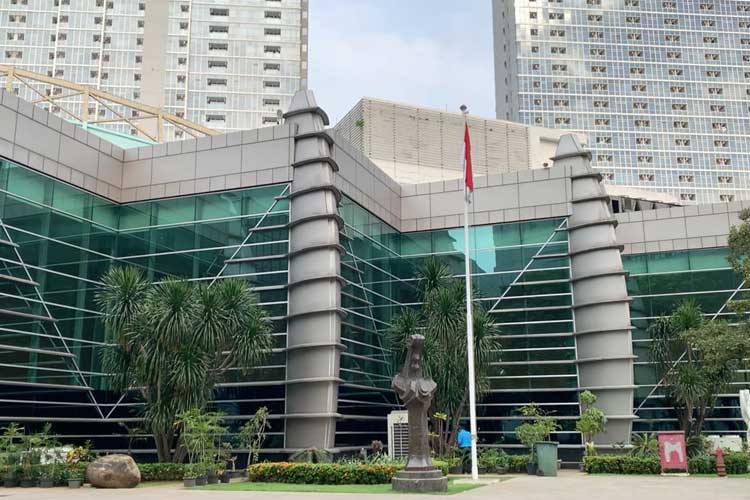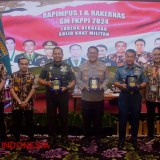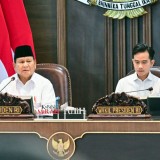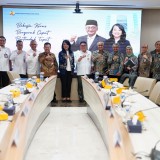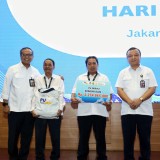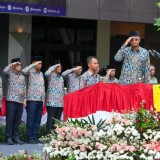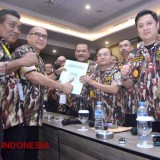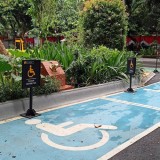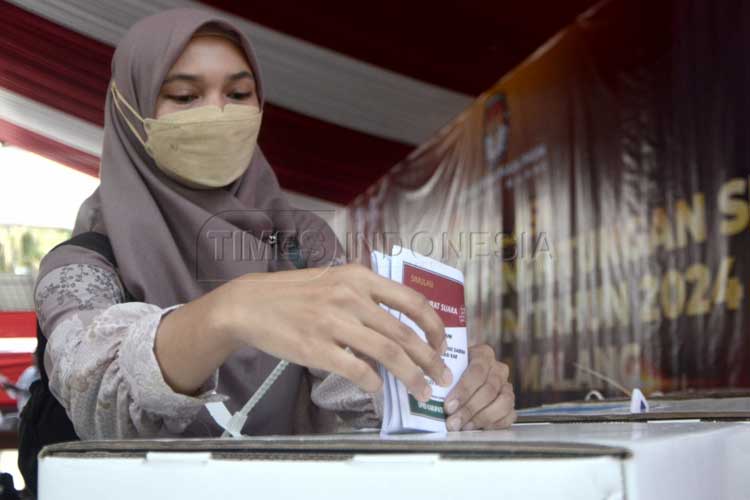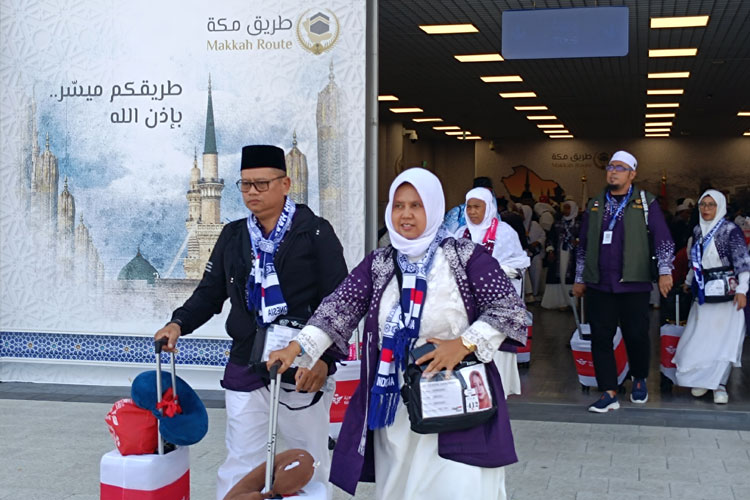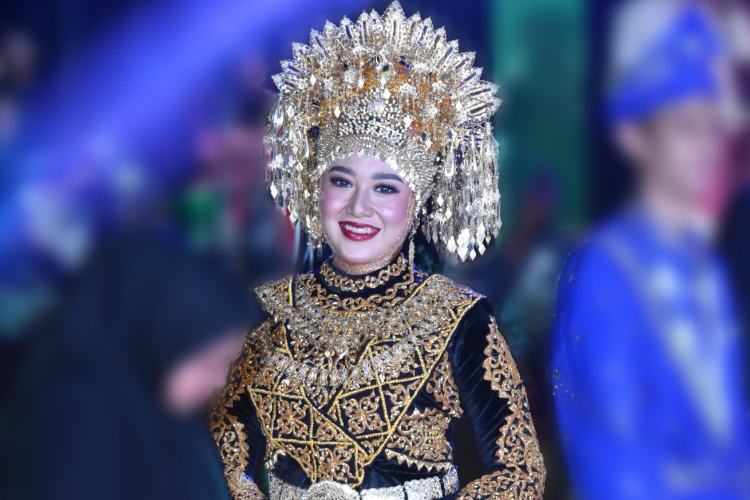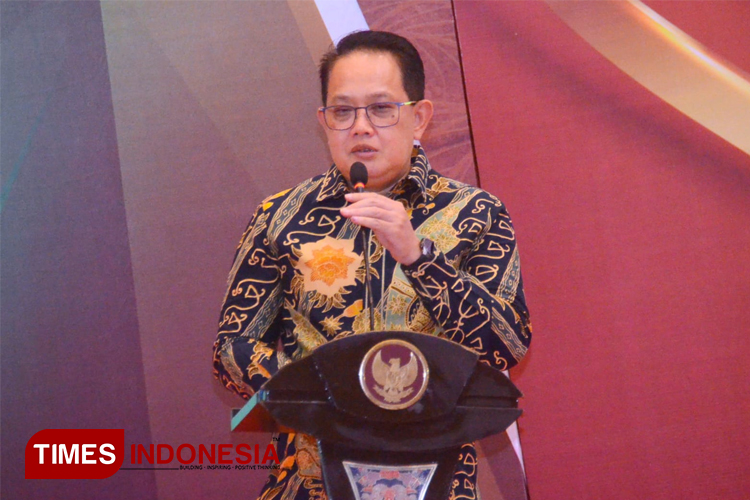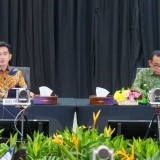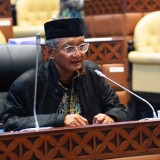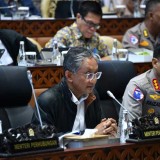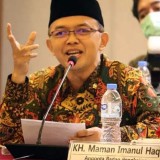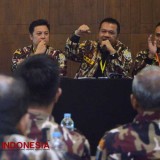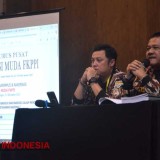TIMES TANGSEL, JAKARTA – Taman Ismail Marzuki (TIM) is where Jakarta’s art scene comes to life, making it the perfect spot for anyone looking to dive into the city’s creative vibe and cultural flair. Located in Cikini, Central Jakarta, it was officially opened on November 10, 1968, by Jakarta’s Governor at the time, General Ali Sadikin. Over the years, this place has become a must-visit destination for art lovers, students, and anyone looking to experience the vibrant arts scene in Jakarta.
The atmosphere is calm but lively, with many visitors exploring the various galleries, theaters, and other facilities. “I’ve always been fascinated by TIM because it’s like a paradise for artists. It’s where different art forms can come to life and flourish,” says Septi Khaerunnisa, a student from Universitas Negeri Jakarta as we sit by the entrance of the library.
TIM is more than just an arts center. It’s a place where multiple forms of art from theater and visual arts to literature and music come together. With its many galleries, theaters, and other facilities, TIM has become a vital cultural landmark for anyone interested in exploring Indonesia’s rich artistic heritage.
“The first thing you notice when you enter the complex is the Ismail Marzuki Monument,” Septi explains. This iconic statue honors Ismail Marzuki, a legendary Indonesian composer whose work has left a lasting impact on the country’s music scene. Standing tall at the entrance, the monument greets visitors as they walk in, reminding them of the rich cultural legacy housed within.
One of the first stops on Septi’s tour is the Ali Sadikin Building, home to the TIM Library, a popular destination for students and book lovers. “The moment you step inside, you’re met with a peaceful and cozy atmosphere,” she says. The library’s minimalist, modern design provides the perfect environment for reading, studying, or simply relaxing.
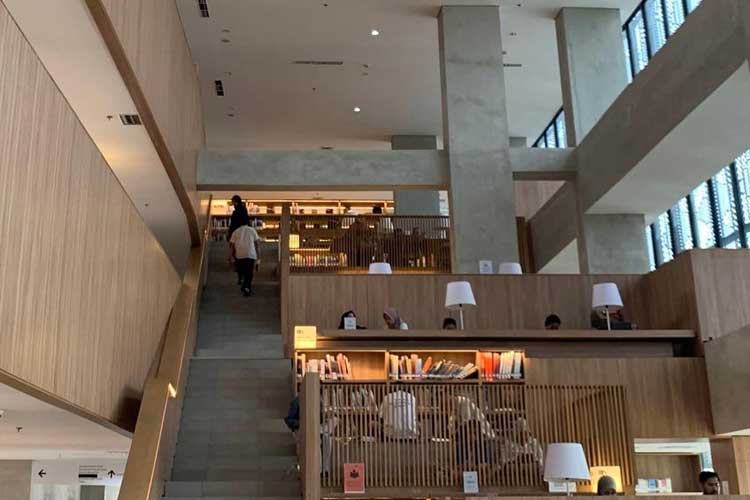
The library spans five floors and holds over 140,000 books covering various genres from literature and science to business and economics. There’s even a dedicated space for children, making it a family-friendly destination. “I come here often to work on assignments. It’s a great place to focus, but it can get crowded on the weekends, so you need to make a reservation,” Septi adds.
After leaving the library, Septi heads to the art galleries that dot the TIM complex. There are three main galleries here: Emiria Soenassa Gallery, S Sudjojono Gallery, and Oesman Effendi Gallery. These spaces host exhibitions and special events throughout the year. “The walk to the galleries is lined with vending machines and small food stalls, so it’s easy to grab a snack along the way,” Septi points out.
While the galleries aren’t open daily, visitors can always catch a glimpse of the exhibitions during scheduled events, showcasing everything from traditional Indonesian art to contemporary works.
One of TIM’s hidden gems is the planetarium courtyard, located near the planetarium itself. It’s a peaceful spot perfect for relaxing, especially in the late afternoon. If you’re looking for a bit more greenery, there’s also a rooftop garden above the parking lot, complete with benches for visitors to sit and enjoy the view.
“I love hanging out here in the late afternoon. The trees and the greenery make it feel so calm,” Septi says.
TIM is also home to several theaters, like the iconic Tuti Indra Malaon Theater, known for its unique architecture. This space is used for theater performances, music concerts, and cultural seminars. There’s also the smaller Wahyu Sihombing Theater, which offers a more intimate setting for performances.
“There’s always something happening here, whether it’s a play, a music performance, or a cultural talk. It’s a great place to experience the local arts scene,” Septi says.
Taman Ismail Marzuki stands as a symbol of Jakarta’s thriving art and cultural scene. Whether you’re a lover of literature, a fan of visual arts, or simply someone looking to unwind in a creative space, TIM has something for everyone. (*)
Pewarta: Fanny Rahmawan (DJ)
| Pewarta | : |
| Editor | : Khodijah Siti |
